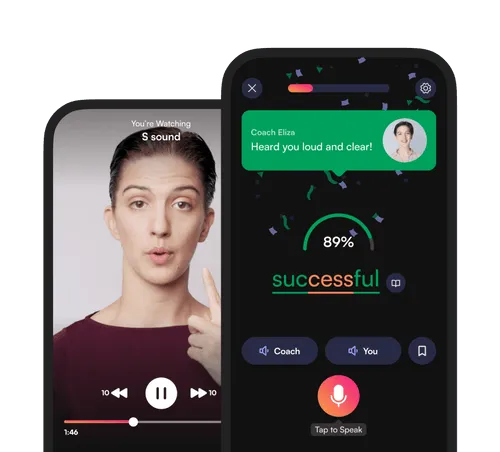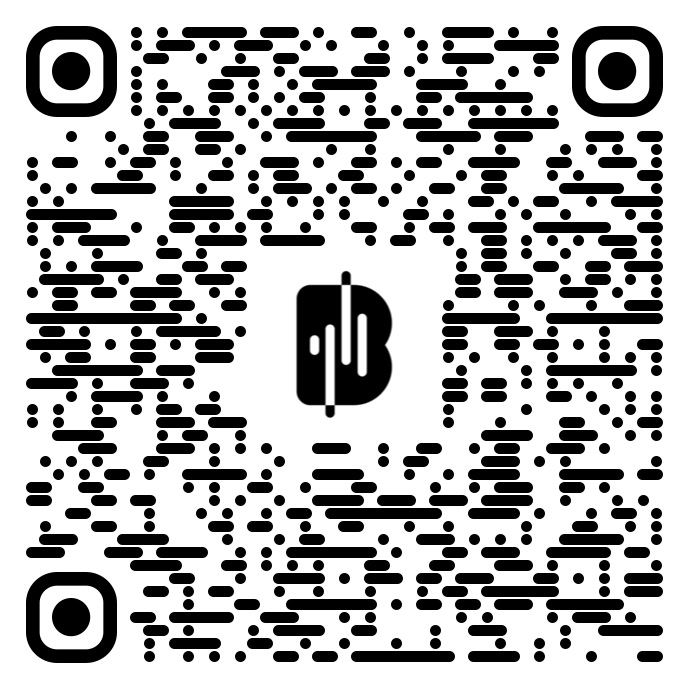Natural speech is exactly that—it's authentic and spontaneous, rather than a pre-written and memorized speech . With that, it's only natural that we occasionally take moments to gather and structure our thoughts when speaking.
That's often where filler words come into play.
Filler words are words or phrases people use in professional and casual conversations to fill time while they figure out what to say next. Filler words are almost always uttered without intention, inserted subconsciously to fill a gap in a phrase or conversation.
Fillers are common with native speakers, as they contribute to making their speech more natural and less robotic. However, they can also disrupt the flow of speech and negatively impact others' perceptions when used too frequently.
Get ready to explore 12 common filler words and phrases you’ll encounter in your day-to-day and discover the best ways to use them!
1. Uh / Um “Uh” and “um” are perhaps the most universal filler words in English. They allow you to pause without making the silence too awkward.
Both "uh" and "um" can be either a short utterance to fill in a split second pause, or a longer, more drawn-out filler when more time is needed.
"I think we should probably meet, uh, Monday morning?"
"Ummm... I'd say I see myself in more of a leadership role."
Both "um" and "uh" are pronounced using the relaxed, neutral schwa sound . "Uh" is simply /ə/ while "um" adds an "m" at the end, /əm/.
Inserting these sporadically feels natural and can even communicate to your listener that you're thinking critically, for instance, in an interview context . However, overusing these common English filler words can give the impression that you're nervous or unprepared.
2. Like This word is a versatile English filler word, popular in casual speech. You’ll often hear a group of friends use it to connect different thoughts like this: “I was, like, really tired after work yesterday.”
Other times, “like” can make your speech less direct, helping you sound a bit more fluid. You could say, “She’s really nice, but like, sometimes she talks too much,” to soften the transition between compliment and criticism.
Because of its nature, “like” is great to use with friends. However, it's important to note that you’ll sound less credible if you use it in professional settings like presentations and academic discussions.
3. You Know Communication is incomplete unless the other person understands you and possibly responds. When casually speaking to people, fillers like “you know” are an effective way to make the conversation interactive and incorporate your listener, even if you're still in the process of explaining your thoughts.
Let’s assume you’re chatting with a colleague, and you say, “It's so frustrating to have to redo the whole presentation because the client changed their requirements last minute, you know?” With that one sentence, you successfully emphasize your frustration and prompt them to respond.
However, like with any filler word, using "you know" too much or in the wrong context works against you. Take this clip from Canadian comedian Norm MacDonald, for example. He inserts the filler "you know" so often into his speech that it actively takes away from his story.
VIDEO
Notice that "you know" is not fully pronounced by native speakers, but rather it's shortened into something akin to "y'know."
Take your free accent assessment Get to know your pronunciation level and get 7 days of lessons for free on the BoldVoice app.
Start Free Trial
4. Well "Well," when used as a filler word, typically appears at the start of the phrase.
"Well, I think we should go with our first idea."
Using "well" can also indicate hesitation or an attempt to be diplomatic. You're in a team meeting discussing a new strategy, and one of your colleagues suggests a bold, untested approach. You could use the filler "well" to introduce your disagreement without coming across harsh.
“Well, I’m not sure if that’s the best approach, but we could try it.”
5. I Mean The "I mean" filler is one of the filler terms in English that could come in handy if you need to clarify a preceding statement. It provides grounds to further explain or defend your point of view.
Let’s use the strategy example that we used for the “well’’ filler above. Now, you can further explain why you don’t think the strategy would work by saying:
“I don’t entirely agree that this strategy would work. I mean, it’s a good plan, but it doesn't account for rising costs."
6. Sort Of / Kind Of These fillers are frequently used when the speaker is not entirely sure or doesn’t want to make a definitive statement.
It expresses a degree of uncertainty to say “I’m sort of thinking about going to the party later” instead of saying “I will attend the party later.” In informal conversations, these fillers make statements less rigid. However, in business or academic environments, they can undermine your authority.
However, these phrases are often slurred in casual speech, becoming “sorta” or “kinda,” especially in American English . For tailored pronunciation lessons designed to help you sound like an authentic American speaker, download the BoldVoice app !
7. Actually “Actually” could come into play when we try to correct or emphasize a point. It serves as a soft counter to what was previously said.
For example, imagine your colleague drops by your office to remind you about a meeting scheduled later in the day. You can say, “I actually thought the meeting was tomorrow, not today,” to acknowledge you had the wrong information—or to suggest that they might be mistaken.
This might sound straightforward, but you want to use “actually” only when necessary because it can come across as condescending, especially when you’re correcting people repeatedly. It's important to be intentional with your tone of voice as well to avoid being unintentionally condescending.
The filler word "actually" can be a helpful correction or a disrespectful way to highlight someone else's mistake, depending on context and tone.
8. Just “Just” reduces the weight of a suggestion or request and it's used to make something seem less demanding or imposing.
If you wanted to ask your friend, partner, or acquaintance for some help with a project, you could say,“I just wanted to ask if you have time to do me a favor.”
And if you want to make a polite professional request via email , you can use this word to soften the directive. For example,
"I just wanted to check in and see if you had any updates on the project timeline."
As with other fillers, overusing this word has its downside. If you’re in a lead position where you give instructions, avoid using the word "just" too much, as it may impact your perceived authority.
9. Basically The word "basically" becomes a filler phrase when it serves a more conversational and less literal function. It helps you fill gaps in conversation, soften statements, or introduce ideas.
“Basically, what I'm trying to say is that we need more resources."
In this case, it's used to indicate that you're about to summarize something you've already expressed but in more concise and simpler terms. It's excellent when you want to explain something complicated and break it into a more digestible form.
“Basically, the entire new system will save us time and money.”
This filler can be helpful when used in moderation, as it breaks down ideas into simpler terms when explaining processes. But using it excessively can come across as condescending, especially if the listener is already familiar with the topic. Basically, you should avoid it when speaking to experts.
10. Anyway Use “anyway” if you want to redirect a casual conversation back to the main point after a digression. It's a helpful way to move the conversation along without seeming abrupt.
If you've gotten off-track in a discussion but you want to re-focus the conversation on the task at hand, you could say "Anyway, let's get back to it. Does anybody have any ideas?"
While the term "anyway" doesn't come with any sort of negative connotation, it's always good to avoid overusing unnecessary filler words to result in smoother, more natural speech.
11. Literally While the word "literally" used to only refer to its literal meaning, that is, taking words in their most basic sense, it has now become a very common filler word in the United States.
Used primarily in informal conversation, "literally" has evolved to intensifying and emphasizing something extreme, even if it's not true.
“I was literally dying of laughter.”
Be cautious of using “literally” in formal writing or speech, where precision is required. This filler is a great way to sound more natural among friends, but it's typically too casual for a professional context.
12. At the End of the Day “At the end of the day” performs one key role in your speech—to summarize or wrap up a point. This is especially true when making a conclusion or emphasizing the most important takeaway.
For example, “At the end of the day, we need to focus on delivering results.”
Using this filler is permissible in informal and professional discussions as it makes you sound thoughtful. It’s akin to announcing that you’ve considered all sides of an issue.
How to Correctly Use Filler Words in English
Moderate Your Use of Fillers
Fillers are great if you want to sound natural and confident, but you must not overdo it. Too many fillers in one sentence can make you sound unprofessional and indecisive, disrupt communication flow, and cause the listener to lose track of your point.
Imagine saying, "So, um, I was thinking that, y’know, maybe we could hang out, like, tomorrow?" It just doesn't cut it.
Use in the Right Context
Fillers often perform a number of functions in your spoken English, and context is key:
Stall for time and show concentration: "um," "uh," and “basically” give you a moment to think before speaking. Rather than an awkward silence, they make you appear like you’re very deep in thought and you’re about to say something of value.
Lessen the blow of a statement: You can incorporate "actually" or "like" into your sentences to soften the impact of corrections or disagreements. For instance, "Actually, I think we should go in a different direction" sounds less harsh than an outright “Let’s take a different route.”
Engage Your Listener: If you want to engage your listener and make them feel included, especially when you’re looking to network, use fillers! A simple "you know" at the end of your sentence can lock in your listener’s attention and have them contributing.
Redirect a conversation: Fillers like "anyway" can steer a conversation in a new direction or refocus it when it’s veering off track. When a discussion starts to drift off-topic, using "anyway" helps to redirect the focus without disrupting the flow.
Practice Often
You must practice consistently if you want to fully grasp the multiple nuances of filler words. For example, fillers like "you know" and “sort of” are pronounced differently in spoken language and it's only with practice and exposure that you’ll discover and incorporate this into your own speech.
BoldVoice is a helpful tool that can help you master filler words in English and refine your overall speech. To ensure you get the most from your practice sessions, Boldvoice fuses lessons from real-life Hollywood coaches and AI-powered practice exercises like roleplaying and speech analysis.
So, like, um, give it a try, y'know?
Conclusion “Honestly,” “I guess,” “so,” “in a way,” and so on are just a few out of the countless English filler words that exist. These fillers require different contexts to be effective, and mastering as many as you can will definitely improve your communication skills.
While all these fillers aren’t covered in this short article, you can find out more about these English fillers and much, much more on BoldVoice .
BoldVoice is designed to help you move past the learning phase to speaking fluently, just like native speakers. Sign up on BoldVoice to get started and enjoy your 7-day free trial for access to all of its advanced features.









